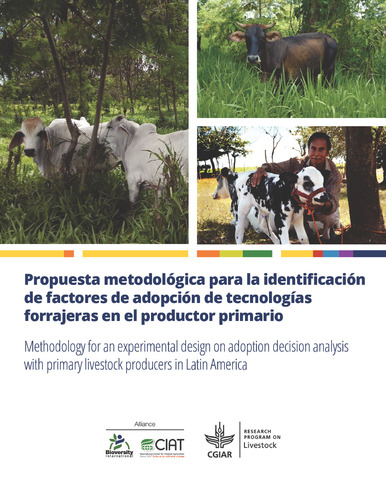Propuesta metodológica: identificación de factores de adopción de tecnologías forrajeras en el productor primario
Abstract
Recent literature on the adoption of sustainable agricultural technologies empirically detected the relevance of a variety of factors relating to the behavior of producers. Dessart et al. (2019) made a precise compilation of these factors and grouped them according to their characteristics and the way in which they impact on the decision-making of individuals, with the aim of complementing economic variables (that are usually the focus of research on decision-making) with factors originating in areas such as psychology and sociology. This in order to help policy making processes to become more comprehensive and supportive to the adoption of sustainable practices. Although, Dessart et al. (2019) focus on studies carried out in Europe and the effectiveness of measures of European Union countries in terms of promoting the adoption of sustainable practices, there is an opportunity to adapt the behavioral factors proposed by them to the Latin American case. This fits into the context of a relatively recent impulse in the field of adoption studies for innovations in the agricultural sector that focuses on the inclusion of sociodemographic and psychological behaviors of individuals in the analyses in order to express their intention to adopt. Based on this, and although in-depth research in the region is necessary to confirm the impact of these behavioral factors, it is possible to adapt the framework proposed by Dessart et al. (2019). In addition, sustainable practices make up a fairly heterogeneous set of agricultural practices that have an effect on both the environment and productivity and therefore, narrowing down the analysis to a specific practice or technology is possible by making some additional adjustments.
The present work proposes a qualitative pilot tool for a forage adoption decision analysis with cattle producers. The tool includes and adapts the behavioral factors detected by Dessart et al. (2019) in order to identify which ones are relevant and how they affect the primary producer’s decision to adopt new forage technologies in Colombia. This tool is part of a set of valuable inputs for the construction of alternative policies and interventions in favor of the adoption of forage innovations. First, we present the conceptual structure, second a method and a series of questions are proposed in the form of a survey, and, finally, some recommendations are made for its application and further adjustment. The tool will be piloted and then applied in Colombia in 2021 (if the COVID-19 pandemic allows for it).

